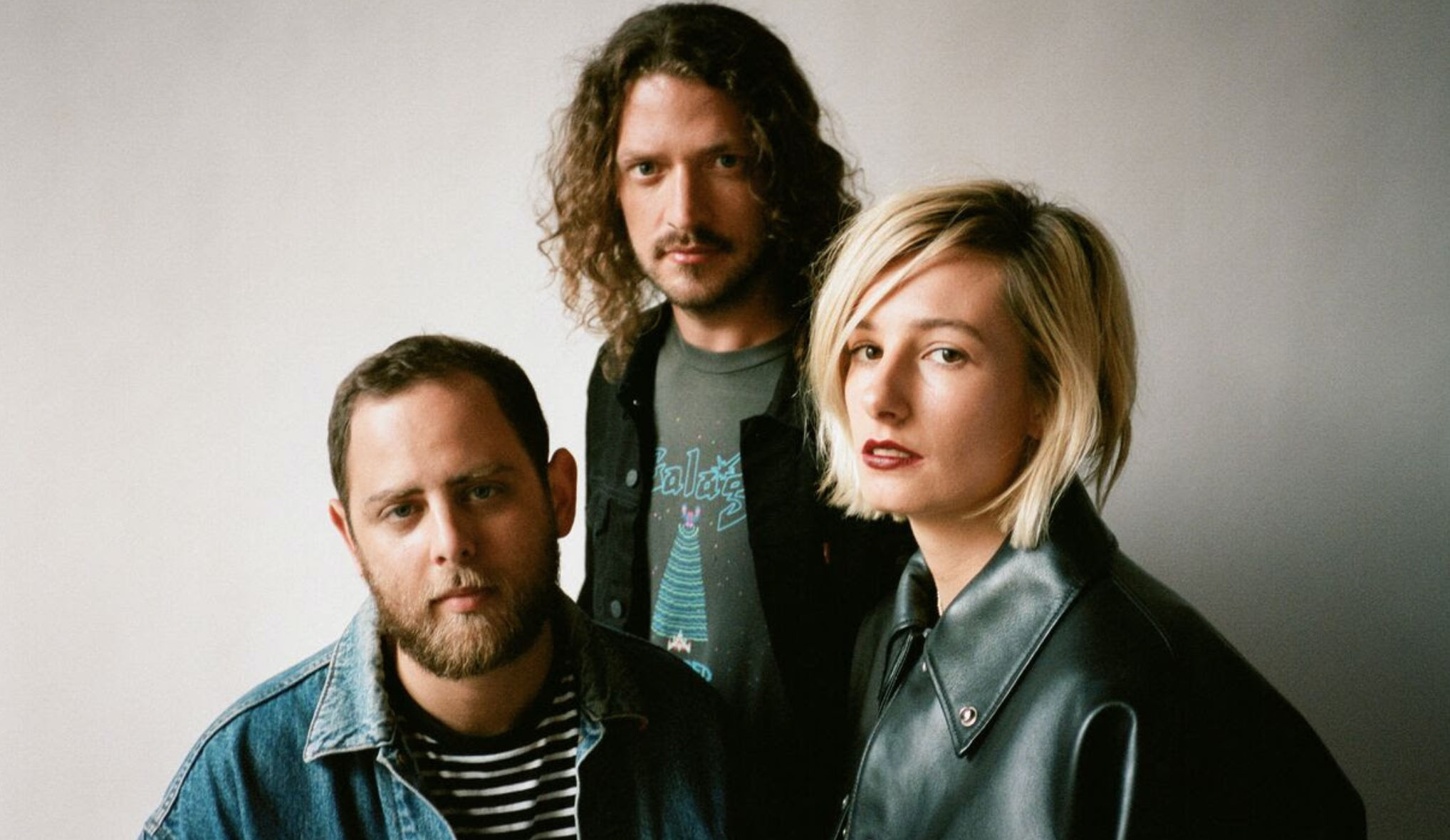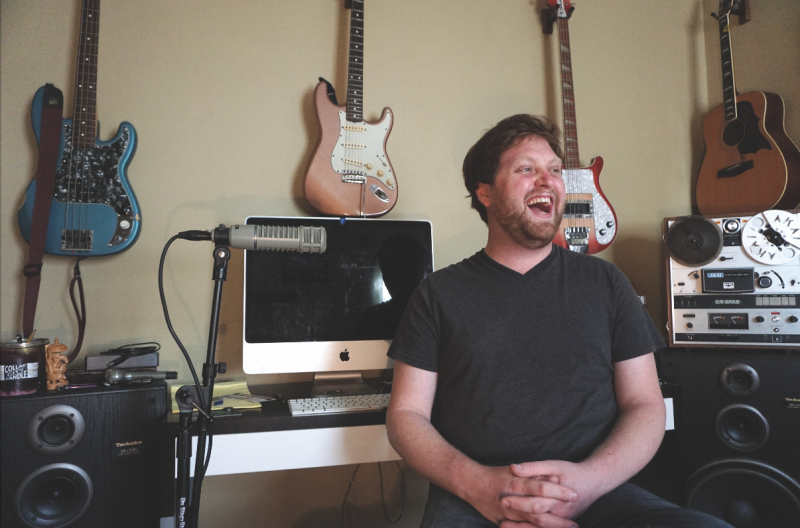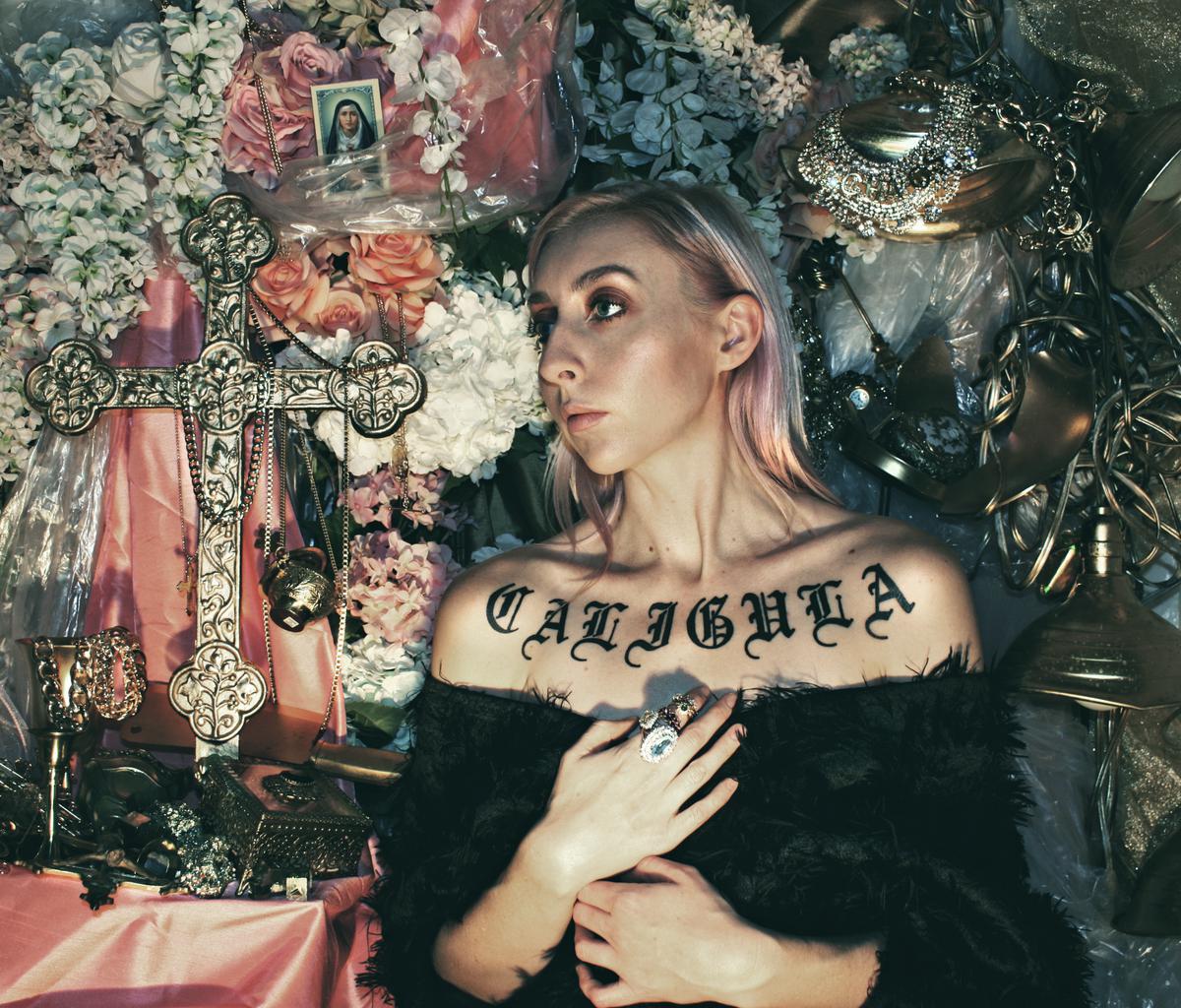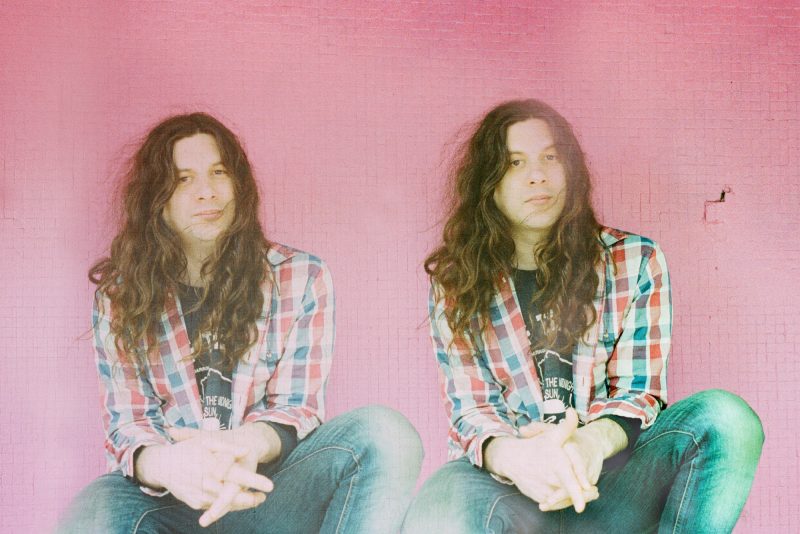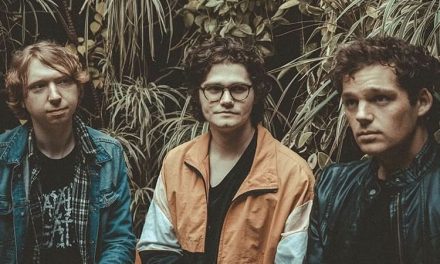In a curtained room off to the side of Lucky Strike Social’s new virtual shooting gallery arcade, Slothrust’s Leah Wellbaum (lead vocals, guitar), Kyle Bann (bass) and Will Gorin (drums) plop down on a leather couch. The grunge rock band is over halfway through their 2018 tour in support of their new album The Pact and the Albany show they played Nov. 11 is one of the last US shows before their first headlining European leg of tour in January. For now, they sit and take in their surroundings with The Collaborative to talk about the creative process behind the new record, produced by multi-Grammy nominated Billy Bush (Garbage, Foster the People), which gave the band more time to explore new ways of playing with sound and storytelling.
I’ve read that you spent significantly more time making this one, spacing it out, compared to the last records. How has that affected the way you write and arrange everything?
Leah Wellbaum: In making this record, we tried not to be too concerned about the live arrangements and instead just making sure we pushed each song to its full potential, refining all the different sonic elements and textures that we picked for each track. Afterwards, we spent a lot of time together talking about all the different ways we could collaboratively arrange them for a live show.
Has it changed the way you work together in terms of recording in the studio?
LB: I would say that we were a lot more relaxed this time in the studio because when you give artists more time it takes that element of stress out. It’s hard to be really creative and really open when you’re super concerned about the clock. That’s been really good for us.
Was there a moment in the studio where you felt that lightbulb moment, like, “This is it. This is the sound?”
Will Gorin: For me, on “Some Kind of Cowgirl,” Billy Bush had this special microphone he had just gotten and we were trying to make some cool sounds. I was playing brushes on a snare drum which, by themselves, don’t sound very impressive but when we went into the room and played it back, whatever he had done to them sounded really cool. I asked him to send them to me in the headphones so I could hear it over the floor drums and glued that song in, for me at least.
Is that something that you work with on stage as well?
WG: No, but if we have more time in the future I’d love to find a way to make that happen. We’ll get there.
Was there anything in the process of working through this album that has changed the way you perform live, despite treating the album as a completely separate entity this time around?
LW: Yeah, on a very literal level we got Kyle a keyboard so he does keys on some songs live right now which is new for us. I think it’s a much more dynamic show. There’s a song where I play an acoustic guitar, there’s one where I don’t play anything at all. The guys do a bass-drum medley thing that’s pretty spectacul-ah.
Do you feel like, as a band, you might be on the cusp of something different–jumping out of your comfort zone in a way that might be uncomfortable?
LW: Occasionally, and I think that’s a really good thing. I think if you’re not uncomfortable sometimes in your artistic and performative life you’re not going to do a lot of growth.
In terms of the songwriting, were there any specific ideas or themes you wanted to get across or communicate in The Pact?
LW: Probably a lot of different things, but I think I would say, get deeper into your own mind and be empowered by that. Take more risks, don’t be afraid, empower yourself and don’t be afraid to write from adjacent selves without feeling like it has to be your whole identity.
How would you describe an adjacent self?
LW: An adjacent self is like a parallel version of yourself that you don’t necessarily live in every single day.
There are a lot of repeating elements in this record that deal with “word vomit,” that feeling where you’re always saying the wrong thing or don’t know what to say, spitting out words you didn’t mean to. Was that a conscious decision of something you were trying to work through or something that just came up in the process?
LW: It’s interesting you say that because I’m definitely someone who does a lot of automatic writing, when you just put pen to paper and start writing and don’t stop. In the process, you always come up with a lot and then sort of go back in and refine it. Sometimes it can be a really interesting and disturbing process, seeing what you put out there when you’re not censoring yourself. Then you can refine it for whatever artistic purpose it has.
I was also curious about what went into writing the song, “For Robin.”
LW: Robin Williams is someone who was really important to me as a child and part of that is because he played a lot of roles where he kept this element of childlike wonder alive and very present. I relate to that and feel very attached to that and we all really loved Robin Williams and had talked about making a whole concept album about him but were like, “No that’s too far, let’s just do a song,” and so I wrote the song and we all arranged it together. Kyle arranged the horns on it.
To jump back thematically, there’s this line from “New Red Pants” that really called out to me as well from this record: “I look so attractive that it could kill you / It could kill me too.” It feels like a lot of female performers are working with this, or maybe it just feels that way with everything going on right now, to communicate how it feels to be treated on a day to day basis. The things we have to face, the threats, really. Is this something you’re trying to work through as well?
LW: Yeah for sure, that’s actually one of the only songs on the record where I could go into a deep lyrical analysis and tell you what it all means. You’re totally on the right track. It’s definitely a song that plays with this idea of the choices that are made for you and figuring out where your agency in that is and how to take that back. About when it’s happened before in history and what to make about it in the modern age.
Does it help you, even on a personal level, to be able to work through that in a song? What’s the power behind putting those concepts into words?
LW: You know, if I had to give advice to any type of writer it would be to look toward any type of automatic writing and not be afraid of what’s in your own mind. Really put it all out there, see what’s in there and then sort through. Don’t censor yourself and don’t judge yourself, I think that’s something that a lot of writers struggle with–feeling like each song has to be a representation of their whole identity and everything has to be gold all the time. It doesn’t, that’s not the way that art and music work so I think being unafraid to make mistakes is really key in ultimately writing some of the most compelling stuff.
Slothrust and Mannequin Pussy played Jupiter Hall, Albany on Nov. 11. The Pact is out now on all streaming services.

